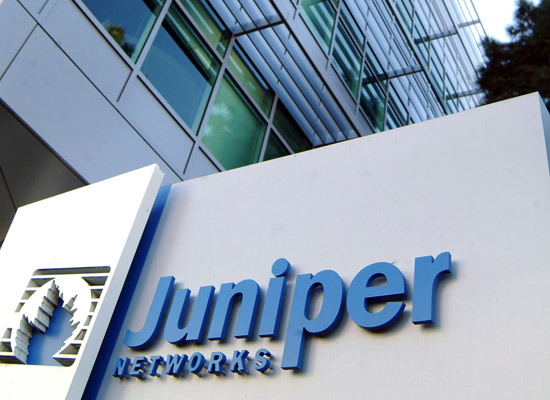Juniper Certification Tracks & Exams: How Do They Compare to Cisco?
 In our post yesterday, we started looking at Juniper Networks – company that pays the highest base salary to software engineers. And not only is Juniper good to work for, it also offers a set of IT Certification tracks, which validate your skills and understanding of Juniper routing and switching technology, including Junos, the company’s own operation system, which runs on most of their equipment (and is a huge competitive advantage Juniper has over Cisco). While Juniper Networks has lower market penetration than its main competitor, it does offer high quality products and holds a stable market share. The reputation of its certifications is on the rise, offering IT professionals an opportunity to take their career in a less crowded direction of high potential.
In our post yesterday, we started looking at Juniper Networks – company that pays the highest base salary to software engineers. And not only is Juniper good to work for, it also offers a set of IT Certification tracks, which validate your skills and understanding of Juniper routing and switching technology, including Junos, the company’s own operation system, which runs on most of their equipment (and is a huge competitive advantage Juniper has over Cisco). While Juniper Networks has lower market penetration than its main competitor, it does offer high quality products and holds a stable market share. The reputation of its certifications is on the rise, offering IT professionals an opportunity to take their career in a less crowded direction of high potential.
So, if you consider pursuing a Juniper certification, take a look at the map of their tracks:
So, what do we see? Until recently, Juniper was breaking their tracks into 2 groups: Junos -focused tracks and tracks centering around the company’s Products and Technology. Recently they have also added a Support Specialist track, which offers 3 certifications on the Professional level (hence, the difficulty).
A quick explanation of the levels:
Juniper Networks Certified Internet Associate (JNCIA). This certification validates candidates’ basic understanding of Internet technology and related platform configuration and troubleshooting skills – both general aspects and the ones based on Juniper’s solutions. Being JNCIA- certified is a prerequisite for some JNCIS-level written exams.
Juniper Networks Certified Internet Specialist (JNCIS) certification covers deeper knowledge and understanding of Juniper’s products, as well as understanding of Internet technologies and design principles candidates need to know to be comfortable at the Specialist level. Passing the JNCIS written exam is a prerequisite for the JNCIP-level exam.
Juniper Networks Certified Internet Professional (JNCIP) certification validates your ability to configure and troubleshoot common networking scenarios. In the course of these written exams, candidates are tested on a broad range of topics – both related to Juniper’s technology, Junos OS, as well as general aspects of internet technology and concepts of networking. Passing the JNCIP exam is a requirement for attempting the JNCIE-level lab exam.
Juniper Networks Certified Internet Expert (JNCIE) is the highest level of certification in the Juniper Networks Certification Program. To get certified, you will need to have completed the previous levels and a lab-based exam.
What about the exams?
While details of all tracks, including required exams and prerequisites can be looked up here, it is worth pointing out that Juniper offers an extensive range of preparation materials, reading lists and guides, all available on their website.
Yet, what many want to know is the answer to a big query: how do Juniper exams compare to Cisco exams? Are they easier? Trickier? We’d say, exactly like the routers and technology of these two companies are, their certifications are just… different. And you can sure find ups and downs in both.
For starters, just like Cisco, Juniper exams are not a piece of cake: they are hard. For the Associate level, you need to come prepared, understanding a lot of underlying concepts of this technology. Which is rather similar to some no-prerequisite Cisco exams, like the CCNA Routing and Switching certification: although it does not call for any prerequisites, you need to have significant background and understand tons of concepts.
When Juniper states it being a written exam, it is a written multiple choice exam: no Cisco-style simulations and drag & drop questions. This definitely makes Juniper exams more vulnerable to brain dumps and all this ‘exam preparation’ stuff available online, which actually gives you what you’ll see on the exam (DO take note of that!) Don’t relax completely though as the exams are still challenging and the questions are tough. And you still need to understand the routers and other Juniper stuff, even before you make it to the higher level lab exams.
So, Juniper certification tracks are a great way to boost your career in the direction of this wealthy company. Sounds good to us. What do you think?
- Category: juniper
- Tags: certification, cisco, exam, exams, it certification, it certification exam, it certification exams, it certifications, jnce, jncia, jncip, jncis, juniper, junos, networks, networks technology
